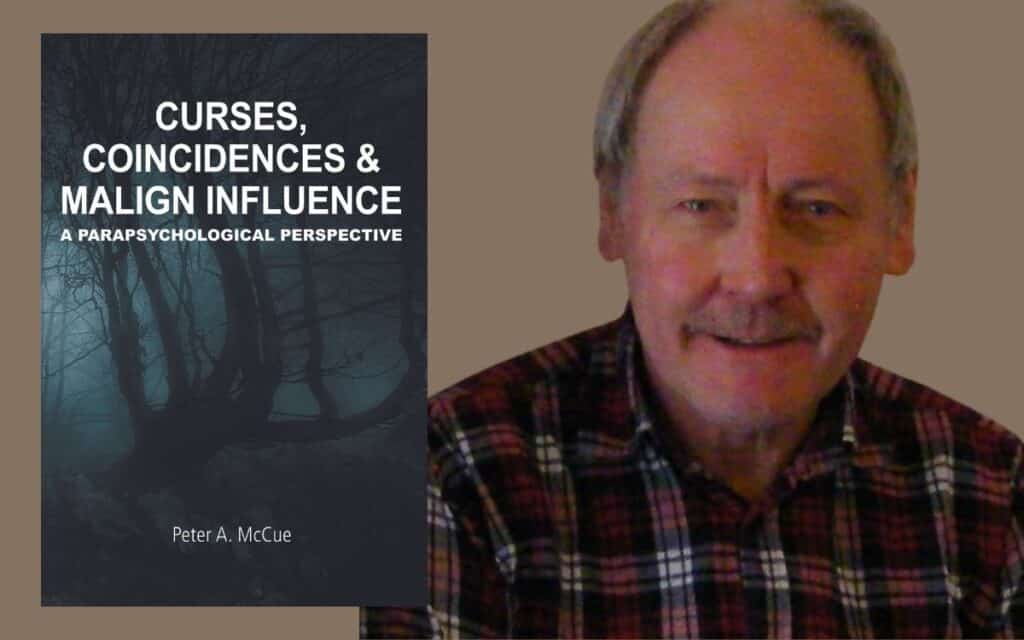DR PETER A. McCUE speculates on whether curses work and if negative thoughts are enough to bring doom on ones enemies

When we hear about curses, the image that comes to mind might be that of an aggrieved person carrying out a symbolic ritual resulting in his or her enemy suffering misfortune or death.
The implication is that the harmful effect is produced in a paranormal way.
However, it may be that a ‘cursing ritual’ isn’t necessary – negative wishes directed towards the target person or group might suffice.
Or it could be that simply harbouring negative feelings about people, without explicitly wishing them misfortune, is sufficient, in some instances, to harm them.
Certainly, there’s evidence from parapsychology for psychokinesis (a ‘mind over matter’) effect, and there’s also evidence suggesting that ‘healing intentions’ can have beneficial effects. If positive wishes can have beneficial effects, it stands to reason that negative wishes may have harmful effects on those targeted.
I’ll use the word ‘curse’ in this broader sense. That is, in suggesting that people might be adversely affected by curses, I don’t mean to imply that the negative influence must have been unleashed by a formal ritual.
Types of curse
I think it’s helpful to divide curses, or inferred curses, into two types.
A Type I curse is one that results in the targeted person or group (e.g. a family) experiencing disturbing paranormal phenomena (e.g. poltergeist-type manifestations).
A Type II curse is one that results in the targeted person or group experiencing bad luck (e.g. illness or financial loss). There seems to be no universal law decreeing that misfortune and unhappy events will be evenly distributed across the world’s population.
By chance, or as a result of other factors, some people will experience more misfortune than others. Therefore, if someone has a run of bad luck after falling out with a relative or colleague, it may be hard to know whether it’s related to hostile wishes or negative feelings harboured by this other party.
However, the case for inferring the existence of a Type II curse might be stronger if the bad luck occurs very soon after the precipitating event.
In my discussion with David Saunderson, I’ll cite a couple of illustrative cases. Further examples can be found in my recently published book Curses, Coincidences & Malign Influence.
How are curses carried out?
Imagine a scenario. A man called Joe selects a spot where he wants to be buried after he’s dead. He then utters a curse to the effect that anyone who disturbs his grave will face retribution.
Some years after Joe’s death, the land concerned is bought by a property firm and turned into a car park. Joe’s angry spirit then initiates a vendetta against the company. It takes the form of disruptive poltergeist activity at their head office.
Now, in this case, Joe is both the initiator of the curse (the one who made it) and the agent (the one who carries it out). We might suppose that he uses ESP, to learn about the layout of the company’s head office, and psychokinesis (PK), to produce disruptive physical effects there (overturning furniture, deleting computer files, breaking windows, etc.).
Now consider a somewhat different scenario. As before, Joe utters a curse, but this time it’s not his discarnate spirit that carries it out, but a resourceful higher intelligence. Acting as the agent, the latter discerns the layout of the firm’s head office via ESP, and uses PK to produce physical phenomena there.
But now consider a third possibility. Instead of being the direct cause of the phenomena at the company’s premises, the higher intelligence forms a telepathic link with June, a secretary working there. But June herself is completely unaware of this.
Given that she works at the head office, she knows the layout of the place well, and the higher intelligence can draw on this information via the telepathic link.
Further, imagine that, without realizing it, June has latent psychokinetic powers, and that that’s the reason why the higher intelligence has latched onto her. In effect, she has become a ‘poltergeist focus’, the immediate source of the disruptive phenomena.
Again, though, she’s not aware that she’s being used in this way. Indeed, along with other staff at the company’s head office, she may find the disturbances decidedly frightening.
I’d suggest that the latter scenario, or something similar, is worth considering in respect of Type I curses, and perhaps with some Type II cases as well. Indeed, it could be that some seemingly ‘typical’ poltergeist episodes are actually Type I curse cases.
If so, we need to look beyond the ‘focal person’ in such cases and ask whether he or she is being used to pursue a paranormal vendetta.
You can buy Curses, Coincidences & Malign Influence: A Parapsychological Perspective from Amazon.

